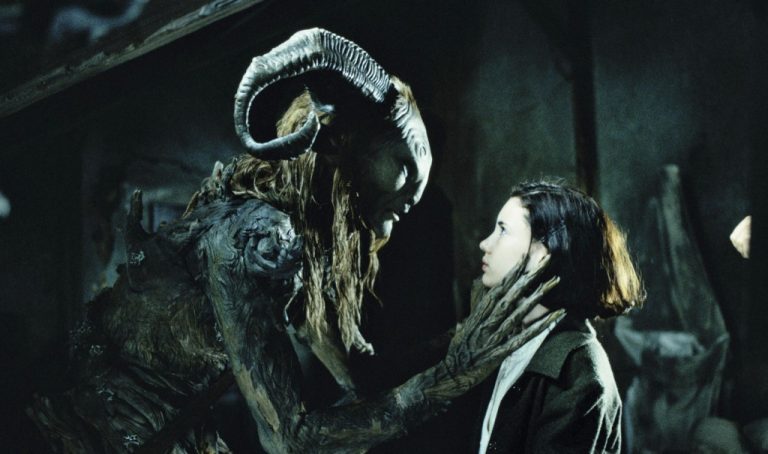*The following essay, Nate Vs. Ted Lasso contains Spoilers from Ted Lasso Season 3 Episode 1*
Since its beginning, one of the key focus points of Ted Lasso was its exploration of the themes of masculinity. In the second season’s finale, Ted Lasso (Jason Sudeikis) saw all his players after a terrible defeat and said and called it a ‘Renaissance painting portraying masculine melancholy.’ The show has always looked for a way to decipher its characters through that prism.
Over the years, it has tackled how their idea of masculinity impacts their mental health. It is uncommon for a show revolving around football players to generally focus on the ruggedness of this sport. The script played against expectations and presented a heartwarming dramedy revolving around its male players. It dealt with their emotional struggles with sensitivity and compassion.
One of the noticeable similarities in most of their journeys was their relationships with their fathers. The previous season deconstructed Jamie Tartt’s (Phil Dunster) character arc based on his father’s emotional abuse. Jamie’s behavior as a smug, self-entitled prick was a reactionary result to his father, who never let him be sensitive about his feelings.
There was always a factor of suppressing such feelings – seeing them as something that made him weaker. Such a vulnerability was frowned upon, which made Jamie never mature in handling his interpersonal relations. His prickly personality became an armor for him against feeling any emotions and also a way to feel validated by his father.
With Roy Kent (Brett Goldstein), Jamie found a figure that he could rely upon. Their hug was one of the pivotal moments from the previous season that added another pearl to the show’s string of criticisms on conventions of masculinity. That moment showed that these ‘leader figures’ for AFC Richmond can be vulnerable and still be formidable forces on the field. There need not be an equation of either-or; you can balance both. The show highlighted it through this stirring moment, among others.
Meanwhile, Ted Lasso brings his affable personality to this foreign land. He was the anchor for their exuberance. However, the team’s strategic brain, Nathan Shelley, aka Nate (Nick Mohammed), always felt side-lined by Ted. Despite having the techniques to get the players to win a match, they always loved and appreciated charming, mustachioed Ted. It continued to bother Nate for more than one reason. It was not mere jealousy. There was rather a history to his anger toward charismatic people like Ted, who took away a spotlight from him.
Nate’s father, an apt representation of South Asian parents, never provided the validation he sought. He always kept expecting more and more from Nate, adding to Nate’s sense of feeling that he’ll never be enough for his father. Natee always saw him as an intimidating figure, always out of reach for him. Conversely, Ted kept using his niceness as a shield in reaction to his neglecting father. It provided him with love and validation and kept his fear of abandonment at bay.
When Nate decided to switch teams at the end of the previous season, it received a polarising reaction. People could not digest the fact that this ‘kind soul’ was becoming a menacing backstabber of AFC Richmond. But there were a few evident reasons for his departure. He could not be a strong, formidable figure like Roy Kent in the AFC Richmond. He also could not receive warm acceptance from the players as Ted did. They kept seeing Nate through the prism of his past identity as a ballboy.
Besides, Nate overvalued what the press said about him, whose job was to create sensational tabloid pieces. He cared about the tweets, which were mostly reactionary and rarely contained anything of value. So, he continued to consider himself worthless. The switch to another team was a result of these factors. His need for validation resulted in him seeking it from somewhere else.
When Rupert Mannion (Anthony Head) roped Nate in as his team’s coach, he decided to use the same aspect to his advantage. After all, he is skilled at using people’s vulnerabilities against them. In the new episode, we see it reflected in their dynamic. He gives Nate the respect he always craved and becomes his father figure. While Nate continues to be shy and polite, Rupert pushes him to be more forthright. He cuts the ties of modesty between them, which feels liberating to Nate. When he sees Nate’s inexpensive car, which he feels rather ashamed to have, Ruperb gifts him a new one. He presents this generosity flawlessly, making Nate easily fall for his tricks.
Ted, on the other hand, takes his team to a sewer for a team-building exercise. The demonstration is meant to elaborate on how they need to un-junk their brains like their homes. (Another mental health titbit from the writers – you can’t focus on your goal until you get rid of distractions. In this case, this junk is the harsh criticism by their team’s critics).
This practical experiment gets flack when someone posts it online and roasts their team. While already being considered the weakest squad, it takes them on a backfoot. Rebecca (Hannah Waddingham) gets mad at him since she knows how Rupert is going to use it to shun her team as he has always done.
Ted, however, continues to be his charming self. He takes the situation in stride and answers the press questions with his general optimism. He also does not mind making himself the butt of jokes. On the other hand, Nate uses his opportunity to roast his old team and try to one-up them. Rupert applauds Nate’s ruthlessness through AFC Richmond’s roast. The same ruthlessness appears in Nate’s treatment of new team players.
While Ted implements empathy and humility in his leadership, Nate tries to emulate a person according to his father’s expectations. The difference between these mentors is similar to the difference between the team owners. Rebecca heralds Ted’s approach of taking criticism in good spirits and not bashing others. Rupert approves of Nate when he shows a lack of vulnerability.
While realistically speaking, neither method is solely beneficial, the show seems to be leaning toward saying how a team needs a mix of all. Everyone has a role to play – be it the strategic brain of Nate, the actual field skills like Roye, or a compassionate motivator like Ted. Still, in the world of Ruperts manipulating the Nates of the world, Teds feel more comforting.







